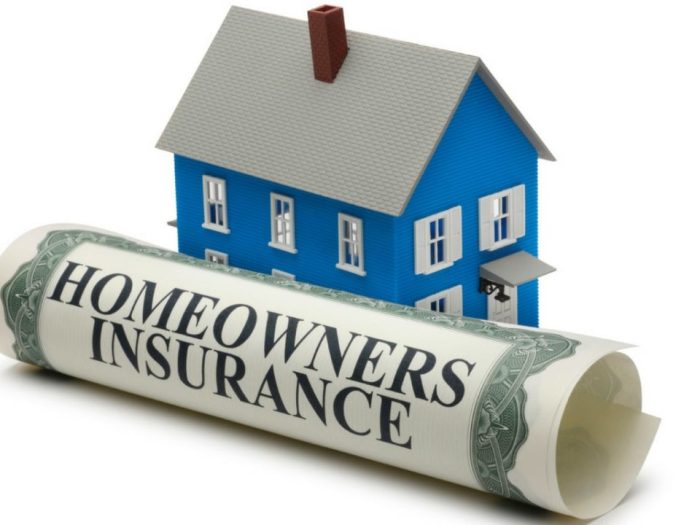How to get a homeowners insurance quote is a crucial step in protecting your biggest investment. Navigating the world of insurance can feel overwhelming, but with a little planning and knowledge, you can find the right coverage at the best price.
This guide will walk you through the process, from understanding the different types of coverage available to gathering the information you need to get accurate quotes. We’ll also discuss factors that influence your premium and provide tips for comparing quotes from multiple insurers.
Understanding Homeowners Insurance

Homeowners insurance is a crucial part of protecting your biggest investment – your home. It provides financial protection against a range of unexpected events that could damage your property or cause personal liability. Understanding the different types of coverage, deductibles, and limits is essential for choosing the right policy that meets your specific needs.
Coverage Types
Homeowners insurance typically includes several types of coverage to protect your home and belongings:
- Dwelling Coverage:This covers the structure of your home, including the roof, walls, and foundation, against damage from covered perils like fire, windstorms, and hail.
- Other Structures Coverage:This extends coverage to detached structures on your property, such as a garage, shed, or fence.
- Personal Property Coverage:This protects your belongings inside your home, including furniture, electronics, clothing, and jewelry, from damage or theft.
- Liability Coverage:This provides financial protection if you are held liable for injuries or property damage to others on your property.
- Additional Living Expenses Coverage:This covers temporary living expenses, such as hotel stays or meals, if you are unable to live in your home due to a covered event.
Deductibles and Coverage Limits
It’s essential to understand the difference between deductibles and coverage limits:
- Deductible:This is the amount you pay out of pocket for a covered claim before your insurance kicks in. Higher deductibles typically result in lower premiums, while lower deductibles mean higher premiums.
- Coverage Limits:These are the maximum amounts your insurance policy will pay for specific types of losses. It’s crucial to ensure your coverage limits are high enough to cover the full value of your home and belongings.
Choosing the Right Coverage, How to get a homeowners insurance quote
When choosing homeowners insurance, consider these factors:
- Your home’s value:Ensure your dwelling coverage limit is sufficient to rebuild or repair your home in case of a total loss.
- Your belongings’ value:Determine the value of your personal property and ensure your coverage limit is adequate.
- Your risk tolerance:Consider your comfort level with deductibles and coverage limits. Higher deductibles may save on premiums but require you to pay more out of pocket in case of a claim.
- Your location:Your geographic location and the frequency of natural disasters in your area can influence your insurance rates.
Gathering Information for a Quote

To get an accurate homeowners insurance quote, you’ll need to provide your insurance company with some key information about your home and your belongings. This information helps them assess your risk and determine the appropriate premium for your coverage.
Essential Information for a Quote
- Your Personal Information:This includes your name, address, phone number, and email address.
- Your Home’s Address:This is important for determining your home’s location and potential risks.
- Home Construction Details:This includes the year built, the type of construction (brick, wood, etc.), and the square footage.
- Roof Details:The age and type of your roof are crucial for assessing potential damage.
- Home Value:This is the estimated market value of your home, which is used to determine the amount of coverage you need.
- Personal Property Value:This includes the value of your belongings, such as furniture, electronics, and jewelry. You can use a home inventory app to estimate the value of your belongings.
- Safety Features:This includes security systems, smoke detectors, and fire extinguishers. These features can lower your premium.
- Claim History:You’ll need to disclose any past insurance claims, even if they were not related to your home.
Impact of Factors on Premiums
- Location:Your home’s location can significantly impact your insurance premiums. Homes in areas prone to natural disasters, such as hurricanes, earthquakes, or wildfires, typically have higher premiums.
- Home Value:The higher the value of your home, the more expensive your insurance premium will be. This is because the insurance company is covering a larger financial risk.
- Personal Property Value:The value of your belongings also affects your premium. If you have expensive items, such as jewelry, art, or collectibles, your premium will be higher.
Assessing Home and Belongings Value
- Home Value:You can get a professional appraisal to determine your home’s market value. Alternatively, you can use online tools or consult with a real estate agent to get an estimate.
- Personal Property Value:Use a home inventory app to create a detailed list of your belongings and their estimated values. You can also refer to receipts or purchase records for valuable items.
Getting Quotes from Multiple Insurers

You’ve gathered all the necessary information about your home and your coverage needs. Now, it’s time to start shopping around for homeowners insurance quotes. This step is crucial, as different insurance companies offer varying prices and coverage options. Getting quotes from multiple insurers ensures you get the best possible deal for your specific situation.
Comparing Quotes from Different Insurers
To compare quotes effectively, you need to understand what each insurer offers and how their policies differ. Here’s a table comparing features and pricing from different insurance providers:| Insurance Company | Coverage Options | Pricing | Customer Service | Claims Handling ||—|—|—|—|—|| Company A| Basic, Comprehensive, Extended | Competitive | Excellent | Fast and efficient || Company B| Basic, Comprehensive | Average | Good | Average || Company C| Basic, Comprehensive, Extended | High | Fair | Slow || Company D| Basic, Comprehensive | Low | Excellent | Very fast |This table illustrates that different insurance companies offer varying coverage options, pricing, and customer service experiences.
For instance, Company A offers comprehensive coverage at a competitive price, while Company D offers the lowest price but with limited coverage options.
Reputable Insurance Companies Known for Customer Service and Claims Handling
When choosing an insurer, it’s essential to consider their reputation for customer service and claims handling. Some reputable companies known for their excellent customer service and claims processing include:
- State Farm:State Farm is known for its friendly customer service and quick claims processing. They have a strong reputation for handling claims fairly and efficiently.
- USAA:USAA specializes in insurance for military members and their families. They are highly regarded for their excellent customer service and claims handling, particularly for active-duty military personnel.
- Liberty Mutual:Liberty Mutual is a well-respected insurance company with a strong track record for customer satisfaction. They offer various coverage options and are known for their prompt claims processing.
Tips for Comparing Quotes and Finding the Best Value
- Get quotes from at least three different insurers:This allows you to compare prices and coverage options to find the best value for your needs.
- Consider the insurer’s financial stability:Check the insurer’s financial ratings from organizations like A.M. Best or Moody’s. This helps ensure they can pay claims if needed.
- Compare coverage options:Don’t just focus on price. Ensure the coverage you choose meets your specific needs and protects your home adequately.
- Ask about discounts:Many insurers offer discounts for things like home security systems, fire alarms, or bundling insurance policies.
- Read the fine print:Carefully review the policy details before signing up. This includes deductibles, coverage limits, and exclusions.
Factors Affecting Homeowners Insurance Rates: How To Get A Homeowners Insurance Quote
Your homeowners insurance premium is calculated based on a variety of factors, each playing a role in determining how much you’ll pay. Understanding these factors can help you make informed decisions to potentially lower your insurance costs.
Credit Score
Your credit score can significantly impact your homeowners insurance premiums. Insurers consider credit scores as a proxy for risk, believing that individuals with good credit are more likely to be responsible and pay their bills on time.
A good credit score can lead to lower premiums, while a poor credit score may result in higher rates.
It’s essential to maintain a good credit score by paying bills on time, keeping credit utilization low, and avoiding unnecessary hard inquiries.
Age of the Home
The age of your home is another factor that influences your insurance rates. Older homes are often considered riskier due to potential issues like outdated wiring, plumbing, or roofing.
Newer homes, with modern construction and building codes, tend to have lower insurance premiums compared to older homes.
If you live in an older home, consider making upgrades to improve its safety and reduce your insurance costs.
Safety Features
Installing safety features in your home can help lower your insurance premiums. Insurers recognize that homes with these features are less likely to experience claims, making them less risky to insure.
- Smoke Detectors:Installing working smoke detectors throughout your home can significantly reduce the risk of fire damage, leading to lower insurance premiums.
- Fire Extinguishers:Having readily available fire extinguishers can help control small fires, potentially preventing major damage and reducing your insurance costs.
- Security Systems:Security systems, including alarms and surveillance cameras, can deter burglaries and vandalism, lowering your insurance rates.
Discounts
Insurers offer various discounts to encourage policyholders to take steps to reduce risk and lower their premiums.
- Bundle Discounts:Combining your homeowners insurance with other policies, such as auto insurance, can lead to significant savings. This is because insurers often offer discounts for bundling multiple policies with them.
- Safety Discounts:Installing safety features like smoke detectors, fire extinguishers, and security systems can qualify you for discounts on your homeowners insurance.
- Loyalty Discounts:Many insurers offer discounts to loyal customers who have been insured with them for a certain period of time. This rewards long-term policyholders for their continued business.
Claims History
Your claims history plays a crucial role in determining your homeowners insurance rates. Insurers view individuals with a history of filing claims as higher risk.
If you have filed multiple claims in the past, you may face higher premiums compared to someone with a clean claims history.
It’s important to only file claims for legitimate reasons and avoid unnecessary claims to maintain a favorable claims history and potentially lower your future insurance rates.
Final Conclusion

Securing homeowners insurance is a vital part of responsible homeownership. By understanding the process, gathering necessary information, and comparing quotes from reputable insurers, you can find a policy that provides adequate coverage at a reasonable price. Remember, this is a long-term commitment, so take the time to explore your options and choose a policy that meets your individual needs and budget.
FAQ Summary
What is the difference between actual cash value and replacement cost coverage?
Actual cash value (ACV) coverage pays for the replacement cost of your belongings minus depreciation. Replacement cost coverage pays for the full replacement cost of your belongings, regardless of depreciation.
How often should I review my homeowners insurance policy?
It’s recommended to review your policy at least annually, or whenever there are significant changes in your home, belongings, or financial situation.
What are some common discounts available for homeowners insurance?
Some common discounts include those for security systems, fire alarms, smoke detectors, and having a good credit score.
